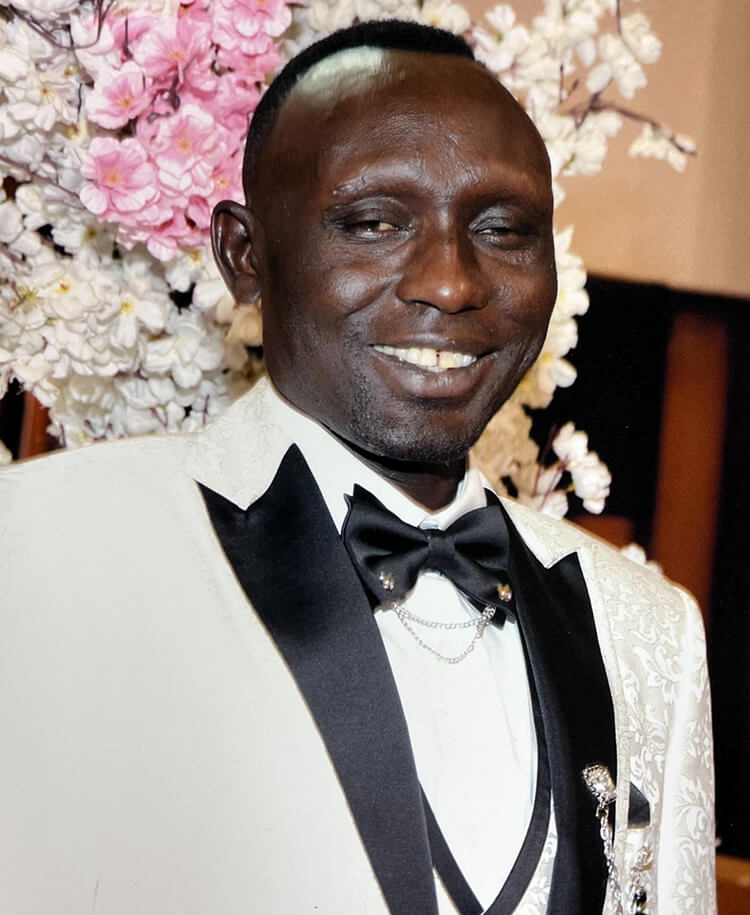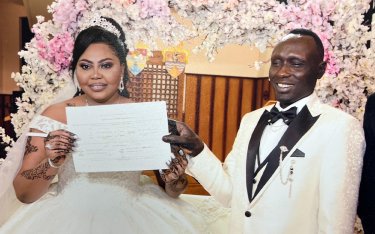Kodi grew up in Khartoum, the capital of Sudan. At seventeen, he and his older brother relocated to Egypt where they applied for refugee status. Sudan had been engaged in a civil war for two decades and their family encouraged them to seek opportunities and safety elsewhere. They waited in Cairo for three years before both were accepted. The only problem was that Kodi’s older brother would be going to Australia while Kodi himself was off to the United States.
He arrived in North Carolina in 2004, eventually relocating to Grand Island, Nebraska. Kodi got there in the middle of summer, when afternoons are hot, humid and to him, familiar. But by his first autumn in Nebraska, he began to realize that winter was going to be a different story. “I couldn’t believe how cold it was, even in October. My friends would laugh and tell me how it was only going to get colder. Nebraska was the first place I saw snow.”
It was here that the eye troubles began, the blue and red shapes that wouldn’t go away. “I knew something was happening to me,” he says. “I was scared.” None of the doctors he visited were able to stop the progression of his condition. “In Iowa City they tried surgery, but it didn’t work.” By this point, Kodi’s sight was all but gone. Aside from the uncertainty he felt about his independence, safety, work and a host of other practical concerns, Kodi was faced with the realization that the last time he had said goodbye to his family would be the last time he ever saw them. Kodi approaches this topic with his characteristic resilience, saying, “It was very sad, but there was nothing I could do. The only thing I could control was what I was doing.”
Kodi knew that he wouldn’t be able to handle everything on his own, but as someone who had lived a largely independent life from the time he was a teenager, this was a major adjustment. “I used to do everything for myself, but once I started going blind I needed to ask people for help.” He moved to Lincoln where there are more support services for the blind. With the help of Connie Daley, a caseworker and advocate with the Nebraska Commission for the Blind and Visually Impaired, Kodi learned how to navigate his new world.
While his colleagues were quick to take Kodi under their wing, they were even quicker to realize that they would be the ones learning from him. In all his time at Universal Pure, only one other employee has come close to his daily tray count.
While Kodi wishes he could be closer to his family, he says that there are few opportunities for the blind in Sudan and Egypt. “In the United States I have options,” he says. “I can be independent. People here can still contribute, even if they have a difficulty.”
When it comes to living with a disability, Kodi’s message is clear. “It’s on me. It’s on me to keep working. I don’t like putting myself down. A blind person can still do things. No matter what, I will keep moving and do whatever I can.”
Universal Pure is not alone in their efforts to accommodate differently abled workers like Kodi. In a tight labor market where companies everywhere are struggling to find team members, many are reevaluating their requirements for a number of positions. Workers are now getting more opportunities, taking on new responsibilities and exceeding expectations, demonstrating that they are capable and determined to become valued members of any business.
Hans Hofmeyr, Kodi’s supervisor at Universal Pure, is one of the many people who appreciate his contributions to the team and find inspiration in his story. “We get him set up, make sure he’s safe, but other than that he’s independent. It’s amazing. We’re proud to have him and we’re grateful for everything he does.”
For the opportunities they provide to individuals like Kodi, Hormel Foods is proud to be a partner of Universal Pure.

